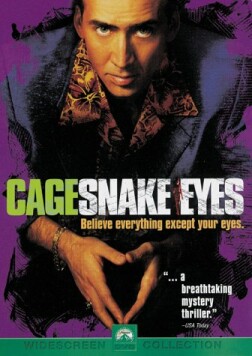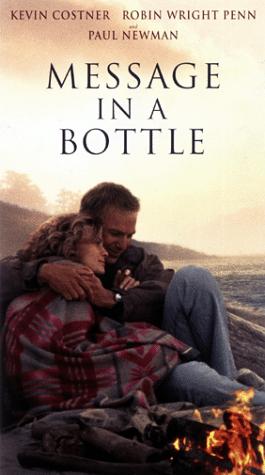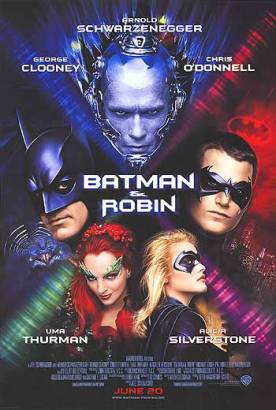Snake Eyes
In Snake Eyes by Brian De Palma we are presented with Nicholas Cage in
the role of Rick Santoro, a loud, corrupt and casually brutal cop in Atlantic
City. He gambles, takes bribes, keeps a mistress on his illegal income and
rarely sees his wife and child. He knows all the angles and has a finger in
every pie. Just about his only attractive feature (assuming that you find it attractive) is a fervent sentimental attachment to
his old high school (“Go Sea Devils!”) and the people he grew up with there.
“Loyalty is my only vice,” he says. Next to him we have one of those old Sea
Devils in the person of Kevin Dunn (Gary Sinise), Rick’s best friend since
childhood but as unlike him as it is possible to imagine. He is a much-decorated
naval officer and combat veteran, a devoted husband and family man and a total
straight-arrow who arrives back in his home town as chief of the security detail
for the Secretary of Defense at a heavyweight title bout.
Guess which one is the hero and which the villain.
I sometimes get angry e-mails from people who criticize me for giving away
the endings of the movies I write about, but I doubt if I have seen half a dozen
movies in as many years whose endings — and, indeed, nearly everything else
about them — were not utterly predictable after the first five minutes. De
Palma himself must have recognized that there was not a dime’s worth of suspense
in keeping the villain’s identity long a secret, and so he reveals it halfway
through. The rest of the film tries to generate excitement over a putative
uncertainty as to whether hero or villain will get to the one witness, the
comely Carla Gugino, to the assassination of the Secretary of Defense.
Guess which one does.
To give him his due, De Palma does his best with such unpromising material,
and there are one or two good lines. When Captain Dunn bemoans his supposed
negligence in allowing the assassination to happen, his old friend the crooked
cop takes him in hand: “There’s one thing I know, that’s how to cover my ass,”
he says. And when Dunn says he can’t lie, Rick assures him: “It isn’t lying; you
just tell them what you did right and leave out the rest.” Now there’s a motto
that might be adopted by the Clinton White House.
But there is only so much you can do with a story which must conform to the
political norms which have prevailed in Hollywood for a quarter of a century.
The military guys, when they are not merely incompetent, must be vicious,
corrupt and murderous. Dunn is in cahoots with a crooked Atlantic City property
developer (John Heard) who also, somewhat confusingly, stands to make a lot of
money from the “Air Guard” missile whose test results Dunn has falsified in
order to get funding from the defense department. The plot to assassinate the
“prairie populist” defense secretary is mounted because he is “dismantling the
armed forces” and in particular the Air Guard.
How could the property developer have posed as his friend and sat next to him
at the fight? How could he have been chosen to give schmaltzy tribute on TV to
the slain secretary after word comes of his death, mouthing the noble sounding
promise not to be deterred by terrorism — from continuing to develop the Air
Guard missile? The thing is not required to make any sense, any more than the
falsification of records that was certain to be revealed. It is enough that the
American armed forces and those who supply them with weaponry are identified,
yet again, as what Hollywood has for so long believed they are, namely
hatcheries for all kinds of evil doing. A good thing we haven’t needed them for
anything else lately.
Discover more from James Bowman
Subscribe to get the latest posts to your email.








